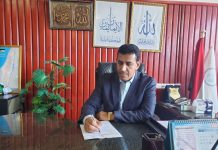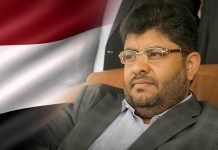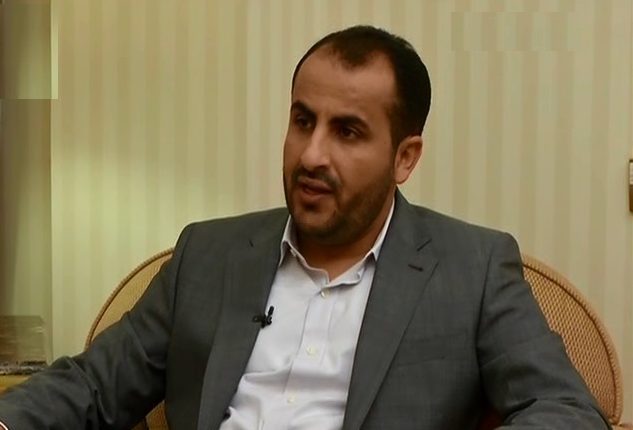The negotiating delegation of national salvation government ( Sana’a government) on Saturday held the Saudi-led coalition countries responsible for bringing the truce understandings to a dead end.
In a statement, the Sana’a negotiating delegation stressed “the right of the Yemeni people to defend themselves and their rights and to confront aggression and siege.”
The negotiating delegation affirmed Sana’a had been keen to not miss any opportunity that could lead towards peace since the beginning of the truce, despite the delays involved.
The delegation’s statement pointed out that Sanaa exercised restraint towards the breaches of the other side to give more time for deliberations and international efforts and the efforts of some brotherly countries.
The statement confirmed that Sanaa had no special agenda other than the interest of the Yemeni people and their human and legal rights.
“Sana’a accepted the first and second extensions of the truce, hoping that there would be the slightest sense of responsibility or understanding on the part of the coalition countries and their mercenaries,” the statement said.
The statement clarified that during the six months of the armistice’s life, Sanaa did not feel any seriousness to address the humanitarian file as an urgent priority. “The coalition countries, after having exhausted all their cards, have no choice but to target the livelihood of the Yemeni people, as it is the easiest way to bring the people to their knees.”
The statement added that the coalition forces’ bet on the economic card and the continuation of the siege had become a clear bet after all their other aggressive bets had failed.
“The desire of the coalition countries is not so much peace as it is keeping them away from the repercussions of the war and direct targeting,” the statement said.
The Sana’a delegation added: “Our demands were equality between Yemeni civil and military employees and retirees in the payment of salaries without discrimination between one province and another, and we wanted to achieve the right of employees to collect their salaries in all provinces from sovereign revenues, foremost of which is crude oil and gas.”
Regarding the opening of roads in Taiz and elsewhere, the statement clarified that Sana’a formed a committee in the first period of the armistice, and the other party refused from the beginning to discuss the opening of roads in all provinces.
On the ceasefire, the statement made it clear that Sana’a formed a military committee that participated in a number of meetings to establish the ceasefire despite the violations, most notably the aerial bombardment.
The statement indicated that the coalition forces’ violations of the armistice led to the fall of dozens of martyrs, especially in some areas adjacent to the border with Saudi Arabia.
With regard to the war prisoners, the statement explained that the National Committee for Prisoners Affairs participated in extensive meetings with the United Nations, but it was surprised that their focus was only on the release of Saudi prisoners and some leaders.




















